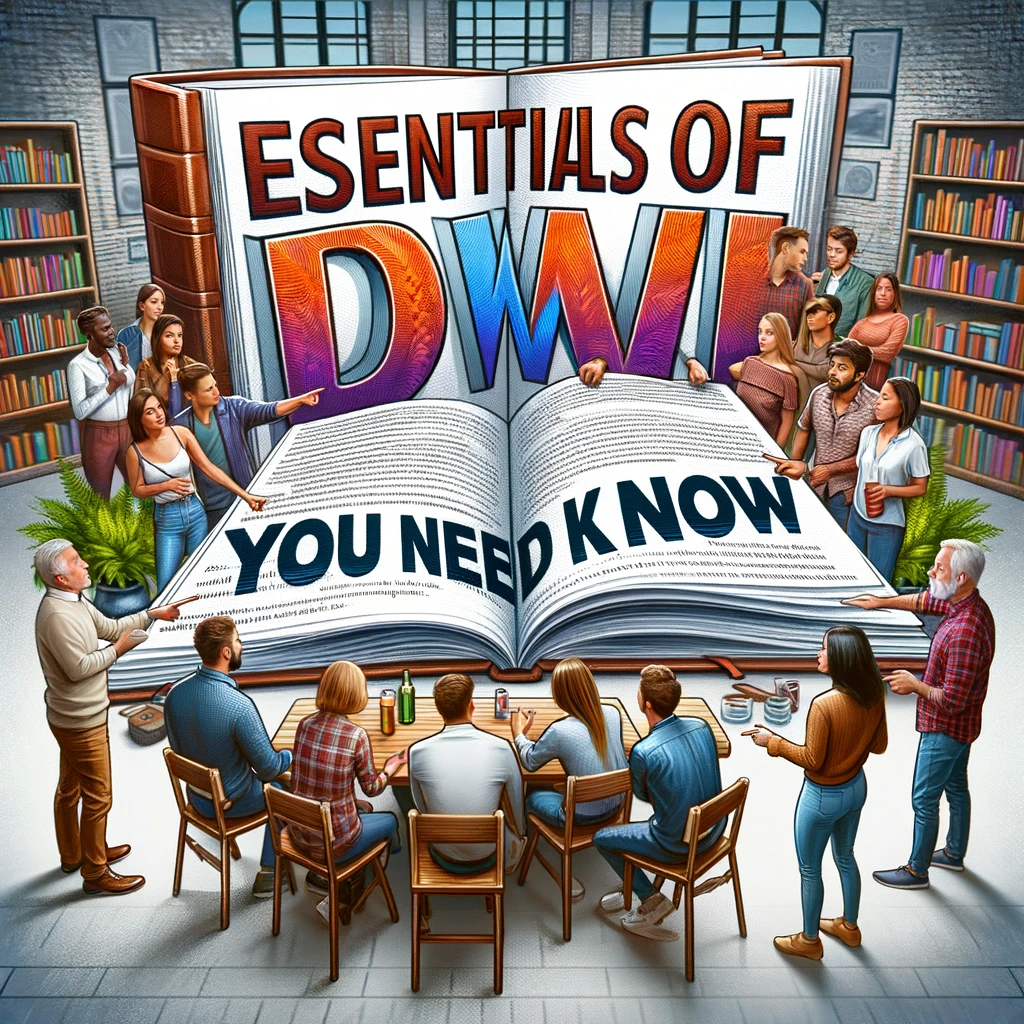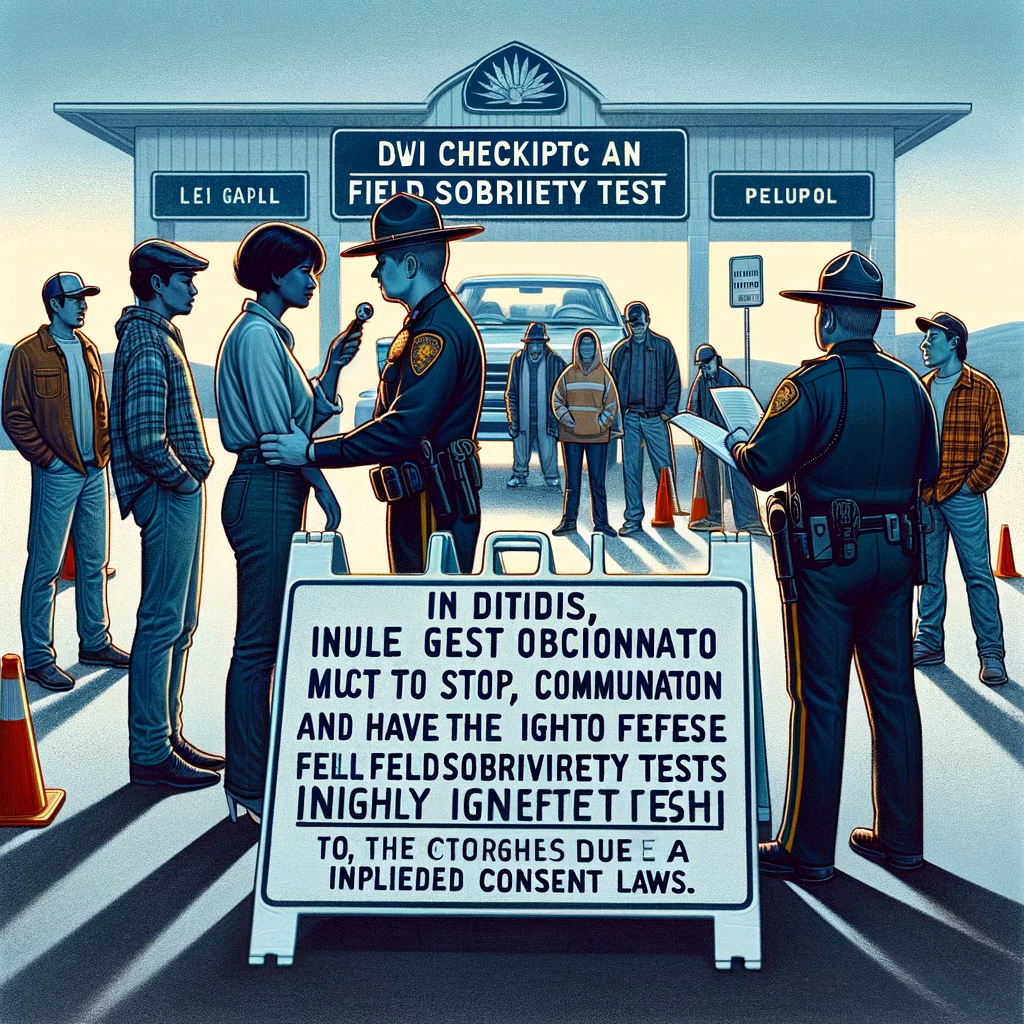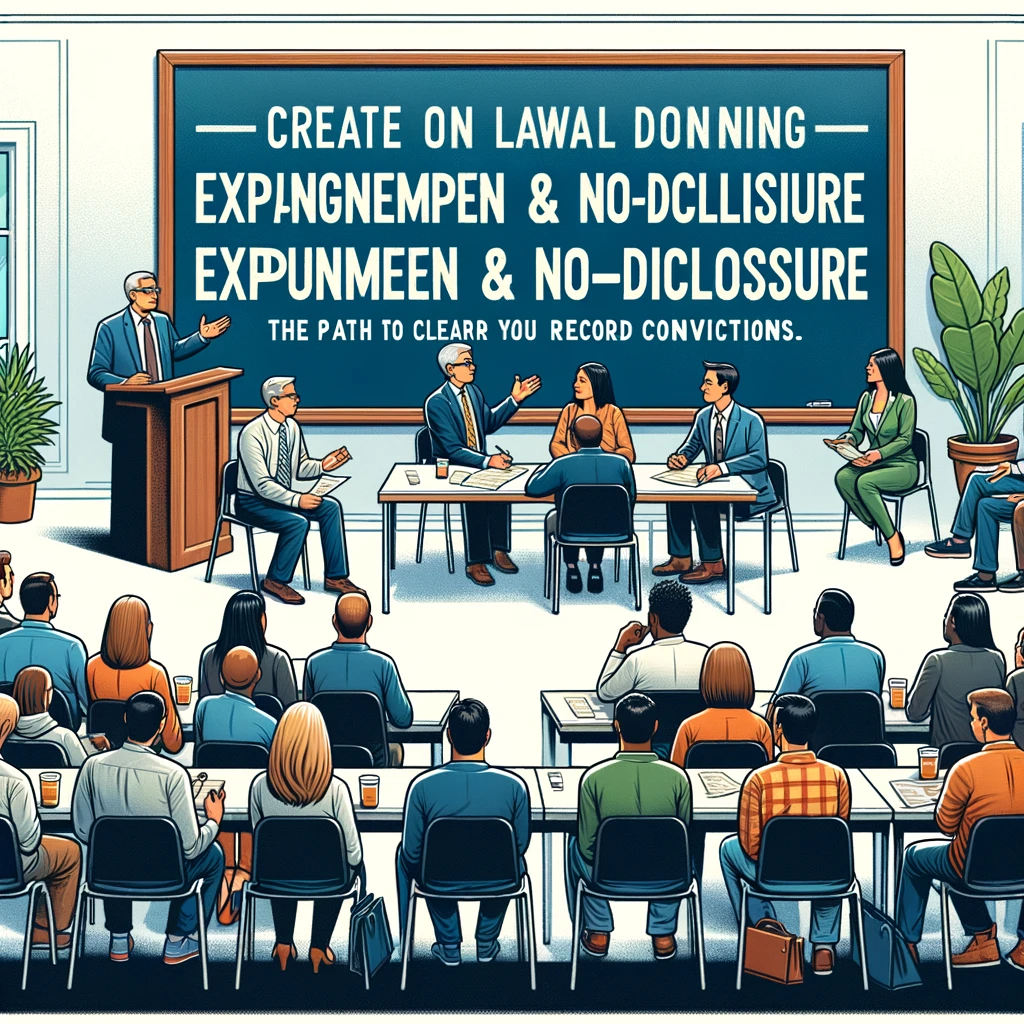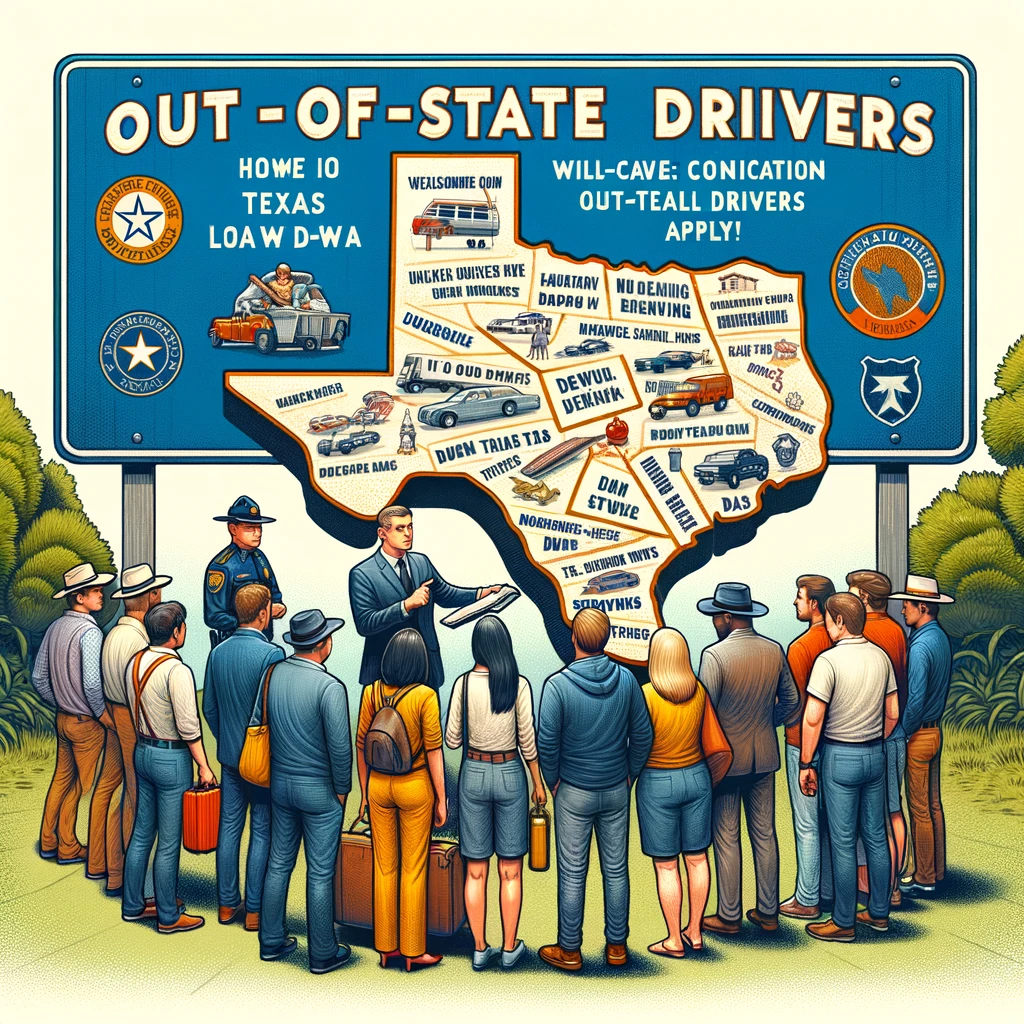
Navigating the complexities of Texas DWI laws is crucial for all drivers. The state’s approach is stringent but fair, aimed at reducing alcohol-related accidents. Understanding the essentials of Texas DWI Laws you need to know is not just about legality. It’s about ensuring everyone’s safety.
Ever found yourself squinting at road signs after a fun night out, thinking, “Am I okay to drive?” Well, you’re not alone. But before you make that decision, let’s talk about essentials of Texas DWI laws you need to know. A topic as vast as the Lone Star State itself.
Imagine cruising down the vibrant streets of Austin
Music blaring, only to see those dreaded blue lights flashing behind you. That’s right, you’ve entered the world of DWI checkpoints. Now, whether you’re a wine connoisseur, a beer buff, or a tequila enthusiast, understanding the essentials of Texas DWI laws is crucial. Why? Because knowledge is power – and in this case, it might just save your license, or better yet, your life.
So, what’s the short answer to essentials of Texas DWI laws you need to know?
Texas DWI laws are tough, comprehensive, and not to be taken lightly. But why keep reading? Because in the next few minutes, you’ll become an informed Texan, ready to navigate the roads and laws with confidence. Dive in to uncover the must-know rules, the surprising penalties, and how not to become another statistic. Welcome to the no-judgment zone – let’s demystify Texas DWI laws together!

Overview of Texas DWI Laws
In Texas, DWI stands for driving while intoxicated. The law is black and white: driving with a Blood Alcohol Concentration (BAC) of 0.08% or higher is illegal. But remember, impairment starts long before reaching this threshold. For commercial drivers, the limit is even lower, at 0.04%. And for those under 21, any detectable amount of alcohol is punishable.
Legal Penalties for DWI in Texas
The consequences of a DWI conviction in Texas are designed to deter repeat offenses. They range from fines to jail time, escalating with each subsequent offense. A first-time offense can lead to fines up to $2,000, and up to six months in jail. By the third offense, fines can reach $10,000, with prison time up to 10 years. Let these numbers sink in; they illustrate the state’s zero-tolerance policy towards drunk driving.
| Offense | Penalties |
| First Offense | Fines up to $2,000; Up to six months in jail |
| Second Offense | Increased fines; Longer jail time |
| Third Offense | Fines up to $10,000; Up to ten years in prison |
DWI and Driving License
The impact of a DWI on your driving license is immediate and significant. Suspension periods vary, but even a first offense can result in loss of driving privileges for up to a year. Reinstatement isn’t just about time; it involves fees, educational programs, and sometimes installing an ignition interlock device in your vehicle.
DWI Checkpoints and Your Rights
DWI checkpoints are a reality in Texas. They are legal but regulated. Officers must follow strict protocols. Knowing your rights is essential. You must stop and speak to officers, but you have the right to refuse field sobriety tests. However, refusal can lead to arrest and license suspension due to implied consent laws.

The Role of Field Sobriety Tests
Field sobriety tests include activities like walking in a straight line or standing on one leg. While they can indicate impairment, they’re not foolproof. Factors like medical conditions or nerves can affect results. Always remember, these tests are voluntary.
Blood and Breath Tests for DWI
Refusing blood or breath tests in Texas has serious consequences. This is due to the state’s implied consent law, which you agree to by driving. Refusal leads to automatic license suspension and can be used as evidence in court. However, these tests must be conducted properly to be admissible.
Aggravating Factors that Affect DWI Cases
Certain circumstancescan exacerbate DWI charges. Driving with a BAC significantly above 0.08%, or with a child in the car, invites harsher penalties. These aggravating factors reflect the increased risk posed to the public and minors.
DWI Prevention and Education Programs
Texas is proactive in preventing DWIs. State-sponsored education programs aim to inform drivers about the risks of drunk driving. These programs are often required for reinstating a license after a DWI. They’re not just a formality; they can save lives.
Legal Representation and DWI Charges
Navigating a DWI charge without an attorney is challenging. Experienced DWI attorneys can examine the details of your arrest, argue for reduced penalties, or even challenge the charges outright. Their expertise can be a game-changer in court.
Expungement and Non-Disclosure of DWI Convictions
Not all DWI convictions are permanent. In certain cases, you can apply for non-disclosure or expungement. This can clear your record, easing future job hunts and stress. However, eligibility is limited, and the process is intricate.

Insurance Implications of a DWI
A DWI conviction means higher insurance premiums. Insurers see you as a higher risk. Additionally, Texas may require an SR-22 form, proving that you carry the state’s minimum liability insurance. This requirement can last for years, adding financial insult to injury.
How a Texas DWI Can Affect Your Career and LicensesDWI and Employment
A DWI can hamper your job prospects, especially if driving is involved. Disclosure of a DWI is often required on job applications, leading to tough conversations with potential employers. Certain professions might even revoke your professional licenses.
Underage DWI Laws in Texas
Texas enforces a zero-tolerance policy for underage drinking and driving. The state aims to discourage alcohol use among minors, imposing stiff penalties even for trace amounts of alcohol. These laws reflect the increased risks and societal concerns regarding underage drinking and driving.
Commercial Drivers and DWI
For those holding commercial driver’s licenses, the stakes are even higher. A DWI can end a commercial driving career, as the BAC threshold is lower and the penalties are more severe. Protecting your livelihood means staying sober behind the wheel.
Out-of-State Drivers and Texas DWI Laws
Visitors to Texas are not exempt from the state’s DWI laws. Out-of-state drivers should be particularly cautious. A DWI charge in Texas can follow you home, affecting your driving privileges nationwide.

In summary: Essentials of Texas DWI Laws You Need to Know
The essentials of Texas DWI laws serve as a sobering reminder of the consequences of impaired driving. They underscore the importance of making responsible choices. If you find yourself facing DWI charges, seek legal assistance immediately. Stay informed, stay safe, and remember, the best choice is always not to drink and drive.
Wrapping Up Our Texas DWI Journey
And there you have it, folks! We’ve taken a wild ride through the maze of Texas DWI laws together. From the sobering (pun intended) reality of BAC limits to the rollercoaster of legal consequences, it’s been quite the journey. But why should you care? Because understanding these laws keeps you informed, safe, and, most importantly, out of trouble.
Remember that time Aunt Edna thought she could outsmart a field sobriety test after her famous Christmas party punch? Spoiler alert: she couldn’t. But you, dear reader, now have the knowledge to make better choices than Aunt Edna. Whether it’s deciding to pass the keys after that extra glass of wine or understanding the weight of a DWI on your future, you’re equipped to navigate the roads (and laws) of Texas with confidence.
So, what’s the short answer on the essentials of Texas DWI laws you need to know?
They’re tough but fair, designed to protect us all. Keep reading, keep learning, and maybe, just maybe, share this with Aunt Edna. Safe travels, everyone!

Other Related Articles:
- Texas’ Response to Designer Drugs: Laws and Enforcement
- DUI vs. DWI: What’s the Difference?
- The ABC’s of DWIs in Texas
- Field Sobriety Tests: What You Need To Know
- The Making of Bentley’s Law
- Pouring Responsibility: Understanding the Texas Dram Shop Act
- Driving with Care: Roadway Responsibilities
- The Collateral Consequences Of Drug Convictions In Texas
- What the Law Says: Failing to Stop and Render Aid
- Drug Crimes vs Drug Offenses: What’s the Difference In Texas?
Frequently Asked Questions:
The primary elements include operating a motor vehicle in a public place while intoxicated by drugs or alcohol.
Rules include zero tolerance for drivers under 21, BAC limits of 0.08% for drivers 21 and over, and severe penalties for violations.
The necessity defense applies if the driver was forced to drive to avoid a greater evil, such as serious injury or death.
Evidence may include field sobriety tests, breathalyzer or blood tests, officer observations, and any video footage.

